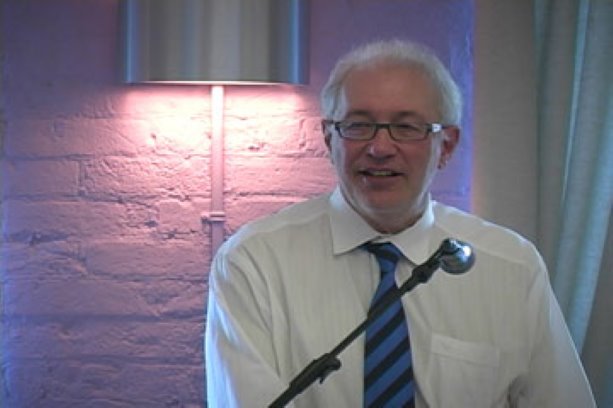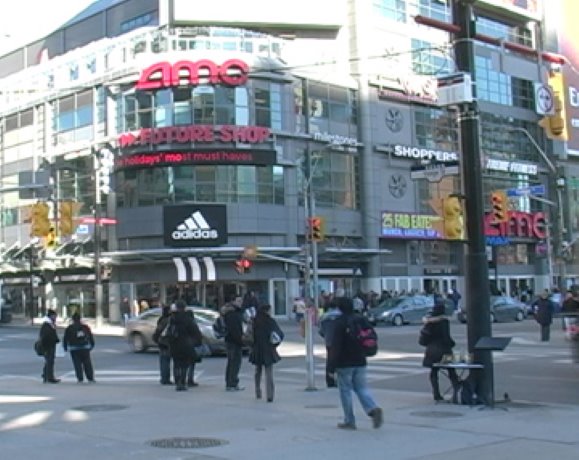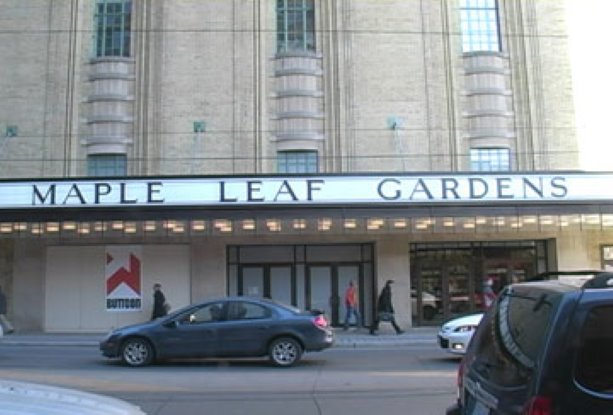When Egerton Ryerson, Ontario’s superintendent of education, purchased land in 1850 for a teacher’s college, it was north of the Toronto city limits. Now that land is beside one of the most happening places in Canada and the university that bears Ryerson’s name is expanding by making property development deals with the private sector.
Sheldon Levy, Ryerson University’s president and vice-chancellor, spoke Feb. 9 to an audience of about 50 professionals in architecture, engineering and design about the use of public-private partnerships to expand his school.
Ryerson would be unable to survive if it was unable to partner with the private sector, Levy said.
He made his remarks at Shimmerman Penn’s third annual educational event, dubbed “Building your firm through strategic alliances,” at the Verity about half a mile south of Ryerson.
Formerly the home of the Normal School, the 21 acres occupied by Ryerson over several city blocks north of Dundas Street and east of Yonge Street became the Ryerson Institute of Technology in 1948 and was later given authority to grant degrees. Today, Levy said, Ryerson University is roughly the same size as York University and the University of Toronto but faces a different challenge in trying to expand in the downtown core.
“This isn’t like you have a big greenfield and you own the land,” he said.
He showed photos of several projects nearing completion or recently opened, including the School of Image Arts, the athletic centre above the Loblaws at Maple Leaf Gardens and the Ted Rogers School of Management at Dundas west of Yonge. Eaton Centre mall owner Cadillac Fairview attracted Ryerson to the property because the other occupants, Best Buy and Canadian Tire, were looking for a third occupant that did not require either space on the main floor or parking spots.
Levy also cited the AMC Yonge & Dundas 24 theatres kitty-corner to the Eaton Centre. AMC Entertainment Inc. operates the movie theatres, which Ryerson University uses for lecture halls between 8 a.m. and 1 p.m.
“In order to build that, we had to negotiate air rights above a garage,” he said. “We had to build them as theatres, not as lecture halls,” so Ryerson installed separate lighting, sound and projection systems in them.
“You say, ‘What a deal. You give a bunch of air and you get 12 lecture halls. No other university could come up with that,’” Levy said. “And I’d say, absolutely true but if you’re in the downtown core, you had better take advantage of the good things.”
Levy also mentioned Maple Leaf Gardens, which Loblaws bought after its resident NHL hockey team moved to the Air Canada Centre. The grocery store is now open and Ryerson is building a sports venue above it, scheduled to open this spring.
“When you go into Maple Leaf Gardens and you cannot touch anything and you have to renovate a ship in a bottle. You must be prepared to accept that there will be surprises and not everything will go well,” he said, adding Loblaws Executive Chairman Galen Weston Junior told him they were “joined at the hip” because both organizations depend on one another.
“If this building doesn’t work for Ryerson, if they do some goofy stuff, it kills Loblaws,” Levy said. “If Loblaws doesn’t have the greatest store in the world, it kills Ryerson.”
Levy also talked about Sam the Record Man, formerly at the northeast corner of Gould and Yonge Streets, but now a vacant lot, on which EllisDon plans to construct the student learning centre. He emphasized that Ryerson University does not plan to dominate the ground floor of Yonge Street north of Dundas Street.
“This will fail tremendously if the vibrancy along Yonge dies, so we have to be very careful that the ground floor is such that it will pull people from Yonge and Dundas.”
But he added new development such as the 75-storey Aura condominiums, under development by Reliance Construction Toronto Inc. a few blocks north at College Street, is a boon.
“I have been criticized for being so outspoken, but I’m not embarrassed by saying, ‘it’s about time,’” he said. “You’re sitting in one of the most important cities in the world, the busiest intersection and just north of it, we have junk. People don’t like me saying that but it’s true, and now, it’s changing quite dramatically.”

1/2
a challenging project, said Sheldon Levy, the university’s president. -
2/2
Sheldon Levy, Ryerson University’s president, recently spoke about how important partnerships with the private sector have helped expand the school in downtown Toronto.
Photo: Greg Meckbach


Recent Comments
comments for this post are closed